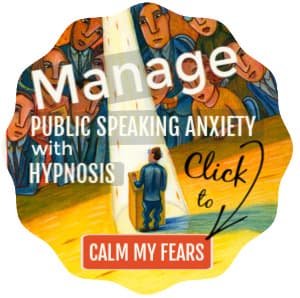- HOME ›
- Speech delivery ›
- American English pronunciation
American English Pronunciation
Are you looking for accent reduction help?
Is your accent blocking communication?
By: Susan Dugdale | Last modified: 01-03-2022
Many visitors to write-out-loud.com are looking for help with American English pronunciation or accent reduction. Typically they are non-native English speakers experiencing the frustration of being misunderstood and need specialist advice to help them move forward.

I approached American English pronunciation expert and Seattle Learning Academy founder Amanda Lillet for advice.
In this interview she covers:
- the benefits of improved American English pronunciation in workplaces and schools
- the sound or sound clusters non-native English speakers most frequently need help with
- how long it takes to noticeably make a difference
- an inspirational before and after story
- and resources for schools, workplaces and individuals
The questions I asked are bolded. Her answers are below.
Amanda, what are the direct benefits for people who consciously work on accent reduction?
First, let me address the term "accent reduction."
Accent reduction is a great buzzword for marketers, but it doesn't really reflect what I do.
I teach American English pronunciation and I focus on the aspects of it that contribute to miscommunication between native and non-native speakers.
"Accent" is hard to measure and isn't always descriptive of the real problems. Better American English pronunciation that leads to better communication is the goal. Beyond being better understood, the next benefit is usually gaining the ability to speak less formally.
The greatest benefit to people who work on it is how much more confident they become in their own speech. Even if certain issues persist, at least the individual knows what they are and can work around them.
What is the typical challenge that people come to you to solve?
Most of my clients are either individual, professional adults that live and work in the United States, or companies in the United States with a large number of non-native speaking employees mixed in with native speakers.
Everyone wants the same thing: to be better understood. As you might guess from those demographics, the context is usually business, and the students are usually frustrated in their communications with native English speaking co-workers.
My most frequent corporate client eased itself into offering American English pronunciation classes or ESL lessons for its employees. In this politically correct climate, management certainly had a fear of how their non-native speaking employees would react.
However, it was their non-native English speaking employees who kept requesting the class, so the company took a chance. That was three years ago, and every offering of the class has filled, with waiting lists. The most frequent comment they receive in their feedback form is, "I wish this had been offered sooner!"
On the whole, I'm pretty sure it is still fear of the reaction that holds other corporations back. To me, that is very unfortunate, because their employees often really want the opportunity to improve.
Regarding challenges, different language groups face different linguistic challenges, so it is very difficult to say which issues are typical. I would have to say the 'th' and 'r' sounds are a pretty global challenge for non-native English speakers, though!
Can an accent ever be lost or neutralized?
Sure, but it isn't easy. It is a long, arduous process to achieve that level of proficiency, and it's rarely necessary in order to get people what they really want.
For most people, sounding like they were born in the United States is not the goal. Many people like to retain at least a bit of how they sound. It is part of their history and heritage.
Plus, being bilingual is an asset in today's workforce, and some accent is a perfect way to highlight a broader range of linguistic skills than most people have who were born and raised in the US.
What sound or sound clusters do people need the most help with to achieve good American English pronunciation?
That really depends on the background of the speaker!
The voiced and unvoiced 'th' sounds (the voiced 'th' is the first sound of the word "them" and the unvoiced 'th' is the first sound of the word "think") are difficult for almost everybody, since they are a sound unique to English.
Even languages that have very similar sounds (like the Spanish 'th' of some regions of Spain) usually have trouble acquiring perfect English voiced and unvoiced 'th' sounds since the circumstances we use them under are different.
Then there is the 'r' sound, and all the ways that the 'r' sound messes with vowel sounds. Japanese is famous for its difficulty with our 'r' sound, as are many other Asian languages.
But even Latinate languages that do have an 'r' sound, or multiple 'r' sounds (Spanish, French, Italian, and Portuguese), have trouble tuning in to exactly the difference between sounds they use and sounds we use.
I also have had students from those languages who have heard from so many people that their accent is really beautiful that they make a conscious choice to continue to roll and tap their 'r's'. To me, that is what it is all about. As long as a person is understood, accents don't hinder speech or professional advancement.
As we say, "Don't throw out the baby with the bath water."
Aside from one to one or group training sessions with a professional language therapist/teacher like yourself what can people do to help themselves with American English pronunciation?
People have found remarkable ways to help themselves and I have been amazed with some of the techniques my students used in the past to get over certain hurdles.
The first step is always learning to hear sounds. If a sound is not used in their native language, it is very difficult to distinguish from other, similar sounds.
We have a lot of vowel sounds in English, more than most other languages, so there are a lot of sounds that are quite different to our ears, but to a non-native speaker sound exactly the same (until their ear gets trained to hear the difference). Once that happens, it is much easier to self-study because the student can trust themselves and what they are hearing.
There are a lot of options out there to learn how to hear American English pronunciation (of course, Pronuncian.com is one of them), and then the student must listen, listen closely, and listen again.
Listen to everything, especially short clips of spoken language that can be played and replayed many times.
Really autonomous students will then compare what they think they heard with dictionary transcriptions. Dictionaries, unfortunately, don't provide all the answers, though.
The next step is to find a person to answer questions to fill in the gaps of missing or confusing information.
There are a lot of ESL forums online that fill this need. Our forums on Pronuncian.com have been popular with many non-native speakers. Many people find that active participation there, both asking and answering questions, is a great learning technique.
How does a person know if they need to work on reducing the impact of their accent?
On rare occasions, people are told by their boss that they need to work on their American English pronunciation. That usually isn't how it goes, though.
There is no test, nor any simple statement like "If people ask you to repeat yourself more than 5 times per day then you need work on your American English pronunciation" or anything like that. It's a really personal decision based on personal circumstances.
If a person feels they are being held back professionally or even in personal relationships due to their speech patterns, it can be very helpful to learn more about American English pronunciation.
We tend to fear what we don't understand, so even an assessment can be helpful. It's scarier to think "People don't understand me" than to know "People don't understand me because I am not forming the 'r' sound like they expect."
How long or how much effort does it take to achieve good results? Does it matter how old you are?
Once a student is past adolescence, it really doesn't matter how old he/she is. (My students have ranged from children to a 64-year-old). It depends on the goal.
If a person wants to sound like a native speaker, those sorts of huge and lasting changes take enormous amounts of effort. That is not usually going to be achieved in an 18-hour course unless the individual is extraordinarily self-motivated and spends a lot of time practicing outside of class.
However, in an 18-hour session the basics can be covered. Major American English pronunciation issues that are likely to cause miscommunication can be resolved, and new patterns can be learned.
Understanding the patterns of English is a big step toward becoming an autonomous learner and being able to continue to improve even after classes end. This is true whether you're twenty or ninety.
Why is it easier for some people to adapt to new language patterns than others?
Of course there are natural mimics out there, but that aside, there have been some really interesting studies done that show the different influences that impact learning and natural ability is often lower on the scale.
The biggest determinant is often the level of individual motivation. I love how many of my students really genuinely put effort into their studies. Also, the fact that many pay for it out of their own pocket shows that they really want to learn. It's really every teacher's dream to have students like this!
Are there traps or pitfalls to trying to change your accent to standard American English pronunciation by yourself?
I don't think there are really any traps, but a definite difficulty is the lack of standard language regarding certain concepts.
Most textbooks use different terms for the same ideas. This is understandable, since the linguistic terms are often too detailed and can be overwhelming for a beginner student.
English is kind of a muddle in the first place, and good pronunciation has traditionally been something of an afterthought in both texts and research.
There's also considerably greater variation in pronunciation than in vocabulary or grammar between British English and American English, or indeed within those two bodies of knowledge. This results in competing and amorphous "standards."
It can make it particularly confusing when a person is looking to several different sources to learn from.
Dictionaries use different symbols, and some even disregard certain sounds all together! This is generally done to simplify the material, and it happens in nearly anything a person is learning about.
However, when your learning reaches a certain point, you realize that what you've been studying isn't necessarily coherent.
Some of my students and Pronuncian users have created some very elaborate charts to compare different websites and textbooks and their terminology. I applaud their efforts, and undoubtedly the process led to a greater understanding and linguistic success.
How do you work with people based in countries other than USA?
I love Skype for long-distance teaching. I will admit, I was hesitant to try it at first. I worried the sound quality would not be sufficient. But I had people request it, and so we tried a little trial. To my amazement, these students excelled!
Since listening is such a huge part of pronunciation work, and the Skype students had to listen very carefully without relying on seeing what my mouth was doing, they had to internalize a lot. Then they had to explain what they were doing, which forced them to really understand their own vocal tract.
Since then I've even had local students switch to Skype for their lessons. They saved a trip across town and learned just as well.
We're pioneering a lot of new techniques on Pronuncian.com for working on American English pronunciation with students in other countries.
A big challenge apart from telecommunication has always been time zones, but by using online assignments, recording, and audio playback technologies, I've been able to successfully time shift my work with students overseas, allowing both of us to work on lessons when it's convenient.
Can you share a before and after story with us? What life-changing opportunities or events have occurred through working on accent reduction?
Specifically, I Skype-taught a lady originally from Korea who really took her American English pronunciation studies very seriously. She was a computer programmer in California and felt that her pronunciation was holding her back in the workplace. She very much wanted to be promoted to a manager position.
Before we even began working together she had already listened to all of the American English pronunciation podcasts we had published and bought our textbooks and made big gains on her own.
I was amazed during her initial assessment at many of the errors she didn't make. I've had a lot of Korean students, and I had a pretty good idea what to expect.
She was already at a place many students would love to reach. For me, it was fun to have a student that had self-taught and so already knew the concepts. We could get right to work on techniques for her lingering issues.
We "met" for 2 hours a week for 9 weeks. Every week we drilled sounds and worked with intonation alongside practicing both formal and informal conversations. We talked about her work a lot to get her comfortable with the terminology she uses daily. This was particularly difficult for her because she was quite shy.
After her 18-hour set of sessions was finished, she signed up for another set! A few weeks in, she was given the promotion she'd been hoping for. And still, with increased work demands, and a child at home, she spent time daily practicing American English pronunciation on her own.
I can take very little credit for students like her. On the contrary, the dedication of students like that inspires me to keep creating more material to help them excel. I think that if that is the effort they put into learning, I owe it to them to keep them challenged and continually advancing.
Thank you Amanda for taking the time to share your expertise. I really appreciate it.
In summary, if you need American English pronunciation training to improve your communication in your workplace or school visit:
Take your time and thoroughly review all the resources Amanda has to offer. You'll find an active forum, the details about the courses she offers (both on and off-line), information about her books and podcasts AND many wonderful testimonials.
About Amanda Lillet
American English pronunciation expert Amanda Lillet received a Master's Certificate in teaching ESL through Washington Academy of Languages and Seattle Pacific University.
In 2005, she began Seattle Learning Academy where she primarily gives ESL pronunciation and grammar related lessons to individuals, small groups, and in corporate settings. Aside from direct student contact, she also provides English as a Second Language teacher training.
She is the author of three student textbooks, Pronunciation Pages: Sounds of American English, Rhythm and Intonation of American English and Linking in American English.
In addition, she created, Pronuncian.com, a website dedicated to allowing students to self-study English pronunciation and providing teachers with the tools and background information necessary to teach pronunciation. In 2008 she began a free weekly/bi-monthly American English Pronunciation podcast available through iTunes. It has had over 16 million downloads!




